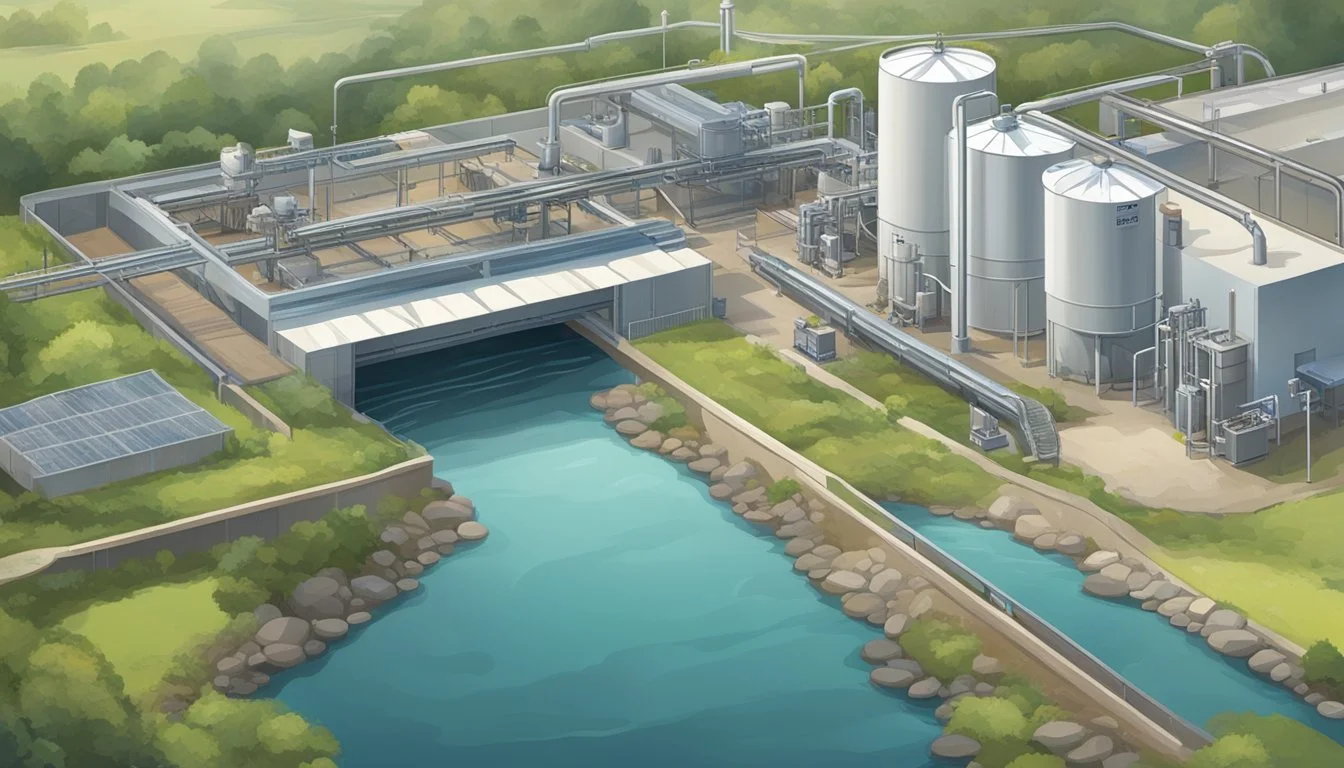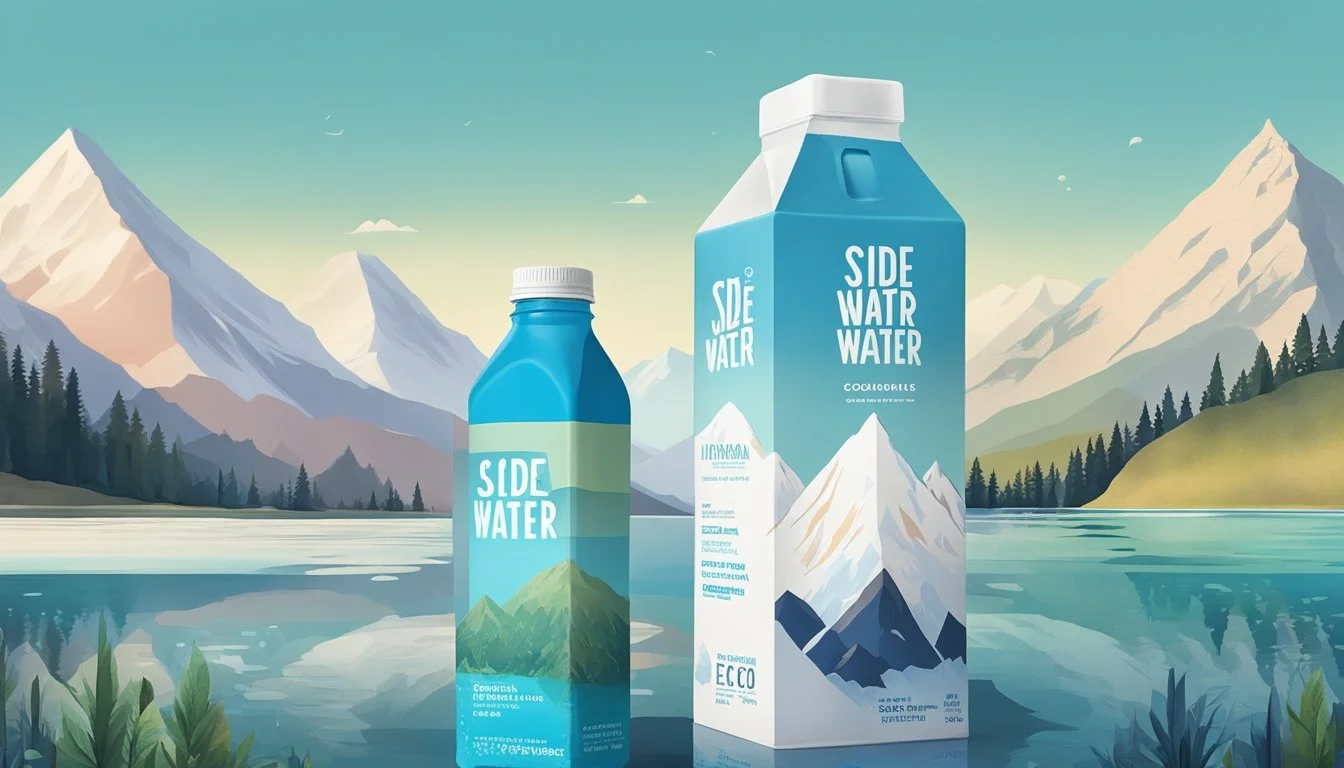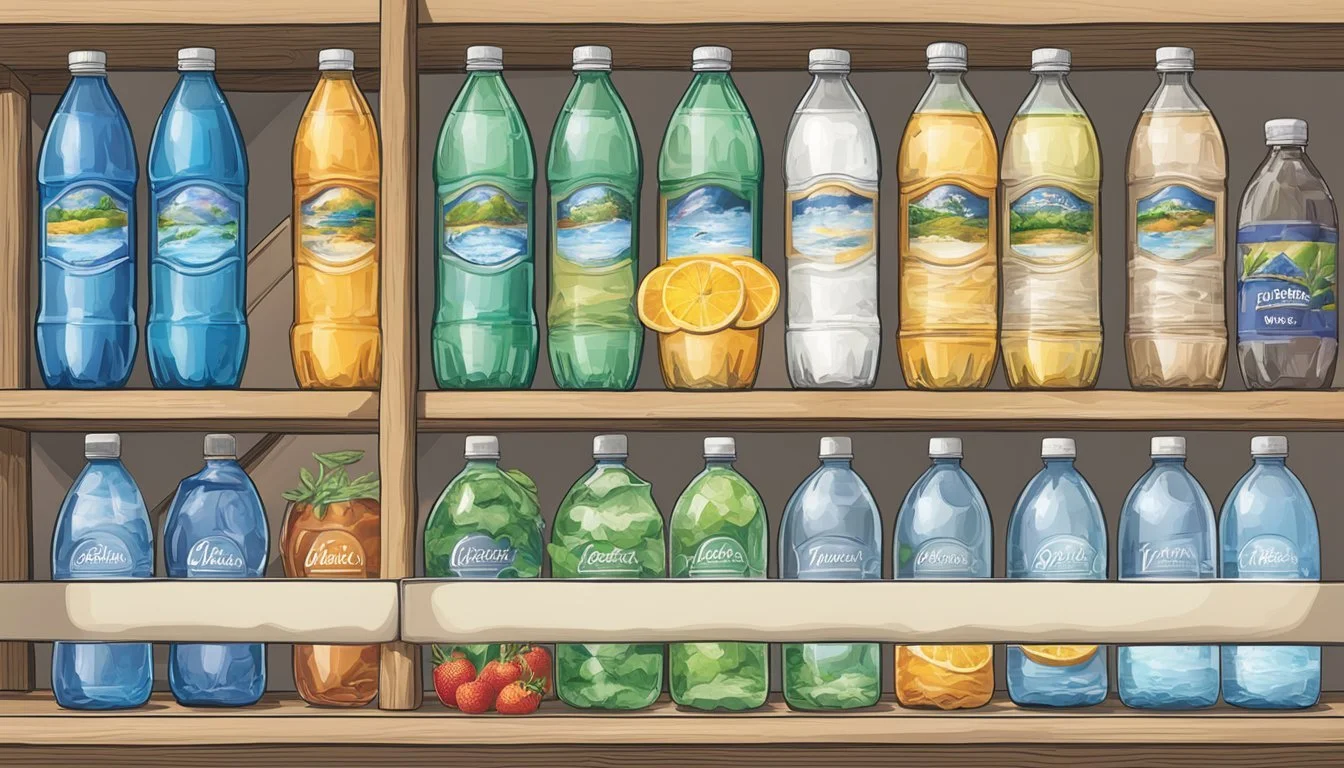Boxed Water vs. Cascade Mountain
Which Bottled Water is Better?
When it comes to choosing between Boxed Water and Cascade Mountain, consumers often weigh factors such as taste, sustainability, and packaging design. Boxed Water, known for its eco-friendly cartons made from a mix of sustainable paper, aluminum, and plastic film, has amassed a loyal following due to its smooth and crisp taste. People appreciate its neutral flavor profile and the fun milk-box-style design that sets it apart from traditional plastic bottles.
Cascade Mountain, on the other hand, offers a reliable and pure drinking experience, sourced from pristine mountain springs. Its bottled water is free from the plastic taste that can sometimes plague other brands. For those prioritizing environmental considerations alongside taste, Boxed Water may be the better choice due to its more sustainable packaging.
Both options provide excellent hydration, but the choice largely depends on personal preference and values. While Boxed Water shines in sustainability and unique design, Cascade Mountain scores for its fresh, natural taste. Readers will explore these nuances to determine which option best suits their needs.
Understanding Boxed Water and Cascade Mountain
Boxed Water and Cascade Mountain represent two distinct approaches in the bottled water industry, each with its unique packaging and environmental considerations. This section explores the characteristics, benefits, and differences between the two brands.
What is Boxed Water
Boxed Water Is Better was established in 2009 with the aim to provide a more sustainable alternative to traditional bottled water. The company's packaging is primarily made from renewable materials, including 74% paper, 1% aluminum, and 25% plastic. This mix ensures durability and water resistance.
The environmental benefits of Boxed Water lie in the use of plant-based materials, which reduce the reliance on non-renewable resources. The cartons are recyclable, making them a more eco-friendly choice compared to standard plastic bottles. Additionally, the design of the packaging is both functional and aesthetically pleasing, resembling a classic milk carton, which helps in differentiating it in the market.
Key features include:
Renewable materials: 92% plant-based content.
Recyclable packaging.
Distinctive milk carton-style design.
Understanding Bottled Water Brands
Cascade Mountain is a prominent player in the bottled water market. Known for its high-quality water sourced from pristine mountain springs, it emphasizes purity and taste. The brand often highlights the natural origins of its water, which is untouched by industrial processes.
Water quality is rigorously maintained, with regular testing to ensure the absence of contaminants. The packaging typically involves plastic bottles, which have a notable environmental impact due to plastic waste. While some of these plastic bottles are recyclable, the overall recycling rate remains low, raising concerns about sustainability.
Key points about Cascade Mountain:
Source: Pristine mountain springs.
Emphasis on purity.
Plastic packaging: Concerns about environmental impact.
Regular quality testing to ensure safety.
While Boxed Water focuses on sustainability through innovative packaging, Cascade Mountain emphasizes water quality and natural sourcing. Both have their own strengths and cater to different consumer priorities.
Environmental Considerations of Packaged Water
Choosing eco-friendly packaged water options involves evaluating the materials used and their impact on the environment. Key points include the effects of plastic bottles and the sustainability of paper and plant-based products.
The Impact of Plastic Bottles
Plastic bottles, like those used by many bottled water brands, have significant environmental concerns. Made from petrochemicals, their production relies on non-renewable resources, contributing to pollution and greenhouse gas emissions.
Recycling rates for plastic bottles remain low, with many ending up in landfills or oceans. This littering leads to long-term environmental harm, including the degradation of natural habitats and harm to marine life. Efforts to improve recycling and using biodegradable alternatives can mitigate some negative impacts.
Sustainability of Paper and Plant-Based Products
Paper-based cartons, such as those from Boxed Water, offer a more sustainable alternative. Composed primarily of paper, such packages utilize renewable resources. Paper cartons often incorporate smaller amounts of plastic and aluminum to ensure durability and waterproofing.
Recyclability varies by location, requiring specific facilities. However, paper decomposes faster than plastic, reducing its long-term environmental impact. Plant-based products further enhance sustainability, offering biodegradable options and reducing dependence on fossil fuels.
Boxed Water emphasizes renewability, using sustainably sourced materials. This choice contributes to lower carbon footprints and encourages a shift towards more eco-friendly packaging solutions.
Health and Hydration Benefits
When comparing Boxed Water to Cascade Mountain, the focus lies on how each brand addresses hydration through their water's composition and safety. This involves the presence of electrolytes, minerals, and how they compare to typical tap water safety standards.
Electrolytes and Mineral Content
Electrolytes such as sodium, potassium, and magnesium facilitate essential bodily functions. Cascade Mountain water naturally contains minerals that contribute to its taste and hydration benefits. It often includes silica, calcium, and magnesium.
Boxed Water, on the other hand, emphasizes purity and clear composition but does not explicitly highlight added electrolytes. Both brands ensure clean drinking water, but Cascade Mountain offers a more mineral-rich profile.
Comparing Tap and Bottled Water Safety
Safety is paramount in bottled water, often compared to municipal water sources. Boxed Water is marketed as pure, undergoing rigorous filtration processes to remove contaminants. It offers clean drinking water that meets safety standards.
Cascade Mountain sources its water from natural springs, with natural filtration through geological formations. This process ensures high safety levels. Boxed Water and Cascade Mountain both exceed safety expectations, providing consumers with reliable and health-conscious hydration options.
By focusing on these aspects, consumers can make informed decisions on their bottled water choices, ensuring they get the best health and hydration benefits available.
Consumer Choices and Behavioral Trend
Consumers are increasingly mindful of their environmental impact, gravitating towards reusable water bottles and eco-friendly alternatives to single-use plastic bottles.
Expansion of Reusable Bottles
The rise of reusable water bottles reflects a significant shift in consumer habits. Many individuals now prefer reusable bottles for their convenience, durability, and ability to reduce waste. Popular brands like Hydro Flask and S'well offer insulated options, keeping beverages at desired temperatures for extended periods.
Fitness enthusiasts and office workers alike appreciate the personal touch of customizable designs. Retail sales indicate a growing market for aesthetic and functional bottles, with consumers willing to invest in a product that aligns with their eco-friendly values.
Addressing Plastic Pollution
Single-use plastic bottles contribute significantly to plastic pollution, prompting a societal push towards minimizing reliance on such products. Brands like Boxed Water and Cascade Mountain have capitalized on this trend by offering alternatives that promise reduced environmental impact.
Boxed Water’s plant-based cartons and Cascade Mountain's commitment to responsible sourcing speak to a flow of consumer preference towards sustainability. Recyclability and eco-friendly materials are now critical selling points. As a result, the bottled water market is adapting to the growing demand for greener options.
Analyzing Water Sources and Production Processes
Understanding the origin and production processes of Boxed Water and Cascade Mountain provides insights into their environmental and quality aspects.
Origin and Production of Boxed Water
Boxed Water is sourced and produced with sustainability in mind. The cartons contain 74% paper, a renewable resource, while using 1% aluminum and 25% plastic to maintain durability and waterproofing. The paper comes from well-managed forests, emphasizing a reduced ecological footprint.
Production involves filling sterile cartons with purified water. This purification ensures the removal of contaminants, making the water safe for consumption. The entire lifecycle, from production to distribution, has been assessed to minimize environmental impact. Boxed Water adopts a "cradle-to-grave" approach to its lifecycle, evaluating every stage from materials used to waste management.
Cascade Mountain’s Water Source and Filtration
Cascade Mountain water boasts a pristine source, originating from the Cascade Mountain Range. This region is known for its natural, protected environment. The water undergoes a thorough filtration process that includes multiple stages such as sediment filtration, carbon filtration, and reverse osmosis. Each stage aims to remove various impurities, ensuring high-quality water.
The brand often highlights its natural filtration, capitalizing on the assumption that water from mountain springs is inherently purer. The source's mountainous terrain contributes to the natural filtration, which complements the industrial processes used, preserving the taste and quality of the water. This combination ensures that Cascade Mountain water remains one of the cleanest and most refreshing options available.
Product Range and Brand Differentiation
Boxed Water and Cascade Mountain both target eco-conscious consumers but differ in their packaging and brand messaging. They offer various types of water to cater to a wide range of preferences.
Variety of Bottled Water Offerings
Boxed Water provides standard still water in its primarily paper-based cartons. They emphasize sustainability by avoiding plastic and using renewable resources. Boxed Water also offers multi-packs, which makes purchasing in bulk convenient.
Cascade Mountain primarily offers still water in plastic bottles but has started to include recyclable options. They may offer a premium line targeting specific consumer needs such as enhanced hydration.
Just Water focuses on eco-friendly packaging, utilizing a paper-based carton with a bio-plastic cap. Their offerings stress purity and sustainability.
Brands like Core Hydration and Essentia are known for their electrolyte-enhanced waters, catering to consumers looking for hydration solutions during intense physical activity.
Hint offers flavored still waters without sweeteners, appealing to those who seek natural flavors.
Sparkling water brands bring diversity to bottled water with options in both bottled and canned formats, offering carbonated alternatives.
Brand Positioning and Market Segmentation
Boxed Water positions itself strongly on the sustainability front. Their marketing emphasizes the eco-friendliness of their cartons, which are mostly paper with some plant-based plastic.
Cascade Mountain appeals to a more traditional bottled water market but has efforts toward more sustainable packaging. Their image combines rugged, natural purity with convenience.
Just Water markets heavily on its reduced plastic usage and BPA-free credentials. They target health-conscious and environmentally aware consumers.
Core Hydration and Essentia position themselves as premium hydration brands. Their focus is on delivering enhanced water with added health benefits, appealing to athletes and wellness enthusiasts.
Hint targets consumers interested in natural flavors without added sugars. They blend health and taste, carving a niche in flavored water.
Canned water brands and sparkling water options diversify product lines, catering to consumers seeking a variety of packaging options and the effervescence of sparkling beverages.
Packaging Innovations and Their Impact
Both Boxed Water and Cascade Mountain are leading the push for sustainable bottled water packaging by utilizing innovative materials and designs that aim to reduce environmental harm.
Advances in Eco-Friendly Packaging
Boxed Water emphasizes the use of cartons made predominantly from paper, integrating about 74-75% paper content. This approach provides a more biodegradable option compared to traditional plastic bottles. Also, the cartons incorporate 1% aluminum and 25% plastic, which allows them to be 100% recyclable where carton recycling is available.
Cascade Mountain, on the other hand, leans towards using plant-based plastics. These materials, derived from renewable plant sources, aim to decrease dependency on fossil fuels. While not as biodegradable as Boxed Water's paper cartons, this method reduces the overall carbon footprint associated with plastic production.
Moreover, there is a increasing interest in glass packaging. Glass, being reusable and recyclable, is another eco-friendly option. It offers durability and can be comparable to reusable cartons and plant-based plastics in minimizing environmental impact.
Consumer Perception of Package Design
Consumers often perceive paper-based cartons and plant-based plastics as more sustainable choices. Boxed Water's design gives a nod to the familiar milk carton, evoking a sense of nostalgia and trust. This familiarity fosters a positive reception among consumers who are environmentally conscious.
Cascade Mountain's sleek, clear bottles, reminiscent of wine bottles, offer a premium feel. This elegant design can draw in a more discerning market that values both form and function. Whether consumers choose based on environmental impact or aesthetics, the packaging design plays a crucial role in shaping perceptions.
The recyclability of these packages further influences consumer choices. Easy recyclability reduces guilt associated with single-use packages. When buyers are confident that their purchase has a lesser environmental impact, it bolsters brand loyalty and sustainability efforts.
Engaging consumers through innovative designs that balance environmental responsibility with attractive presentation remains a top priority for these brands.
Flavored and Enhanced Water Varieties
Flavored and enhanced water options are increasingly popular for those seeking more than plain water. Popular brands incorporate various flavors, vitamins, and other additives to attract consumers with diverse preferences and health goals.
Trends in Flavored Water
Flavored water has become a major trend in the beverage industry. Brands like Hint and Bubly are popular for their fruit-infused options. Hint offers flavors such as cherry, watermelon, and blackberry, while Bubly provides a sparkling twist with flavors like grapefruit and lemon.
Another trend is the incorporation of natural ingredients. Flow Organic offers options like Cucumber + Mint and Strawberry + Rose, emphasizing organic components. These choices appeal to consumers looking for a refreshing taste and natural benefits.
Health Implications of Added Ingredients
While flavored waters are a tasty alternative to plain water, it's essential to consider the impact of added ingredients. Some products, like Gatorade, include electrolytes and vitamins aimed at rehydration and recovery. These can be beneficial for athletes and active individuals.
However, some flavored waters contain preservatives and artificial sweeteners, which may pose health concerns for some consumers. Choosing products that use natural flavors and minimal additives, such as Flow Alkaline Spring Water or those labeled as naturally alkaline, can be a healthier option.
Monitoring ingredient lists helps consumers make informed choices tailored to their health needs, ensuring they benefit from the hydration and added nutrients without unwanted additives.
The Bottom Line
Boxed Water and Cascade Mountain offer distinct choices in the bottled water market.
Environmental Impact
Boxed Water cartons primarily use sustainable paper and some plastic. Their design targets reducing plastic pollution. In comparison, Cascade Mountain traditionally uses 100% plastic bottles, containing petrochemicals.
Recyclability
Boxed Water's cartons are recyclable in areas with appropriate facilities, ensuring a more eco-friendly disposal. Cascade Mountain's plastic bottles are widely recyclable, though actual recycling rates remain lower.
Taste and Design
Boxed Water is noted for its crispness and neutral taste, with the milk box-style design deemed fun. Cascade Mountain emphasizes its purity and natural taste, often highlighted by the clear, traditional plastic bottle.
Companies' Commitment
Boxed Water's inception revolved around a sustainable vision since 2009. Cascade Mountain focuses on natural sources and purity, often derived from mountain springs.
Criteria Boxed Water Cascade Mountain Packaging Paper, aluminum, plastic Plastic Recyclability Yes (specific facilities) Yes (widely, lower rates) Environmental Sustainable focus Plastic-derived from petrochemicals
Choosing between Boxed Water and Cascade Mountain involves weighing sustainability and taste preferences.







